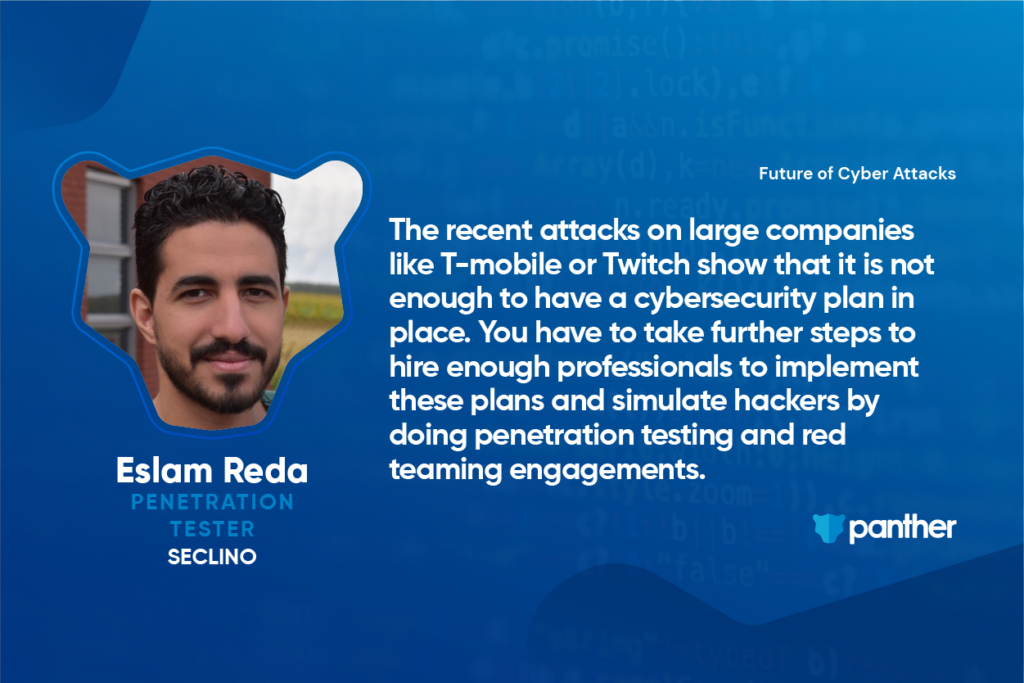This article is part of Panther’s new Future of Cyber Attacks Series which features interviews with cyber security experts, thought leaders, and practitioners with a goal of better understanding what organizations can do to prepare themselves for the future of cyber attacks.
The following is an interview we recently had with Eslam Reda, Penetration Tester, SECLINQ.

There have been a lot of changes in the cybersecurity space because of the rise of ransomware attacks and 0-day exploits. A lot of the details on how to use these exploits get published on the dark web and malicious forums, which provides opportunities for hackers to use these exploits against other companies. The move to cloud environments also makes everything reachable with one configuration mistake.
It has been a successful 12 months for hackers targeting the human element with phishing and other attacks. Hackers target situations around the world such as the Covid-19 situation and working remotely.
Do not trust the hackers, if you pay the ransom there is no guarantee that you will get your data back. Take sufficient measures to secure your data, backup your data, and have a business continuity plan in place. Recently, it has been a trend that hackers target the backups of your data before taking over the main data for ransom, then the controls you use to protect your data are used against you.
The recent attacks on large companies like T-mobile or Twitch show that it is not enough to have a cybersecurity plan in place. You have to take further steps to hire enough professionals to implement these plans and simulate hackers by doing penetration testing and red teaming engagements.
From my point of view, as I have been on both sides hacking systems and also protecting them. It is an everyday evolving field, there is no guarantee that the attacks used today will be effective tomorrow. But the attack surface itself is increasing to include IoT, Public cloud, and working from home structure. A lot of companies are moving towards AI to create security products which is a good step, but I don’t see it replacing the human skilled ethical hackers any time soon.
